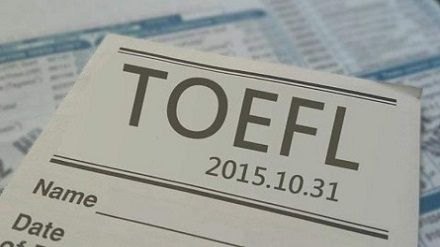Early To Rise May Not Be Wise
Created by Jeenn Lee Hsieh
谢振礼老师海外投稿
早睡早起身体好—好像是小学生的作文题。富兰克林的名言常被引用来支持此论点。一早就起床干活,还可以发财,又带来智慧。信不信由你。
托福写作测验有一个真题。有人喜欢早起,开始工作。另外有些人喜欢晚起,然后工作到很晚。你喜欢那一种?写出有关的理由和例证,以支持你的选择。
乍看之下,工作肯定与金钱有关,早睡早起还不是心想多干活赚钞票。好习惯带来好健康。有钱又有好身体,选择早起,看来是聪明之举。下文的创造是为了好玩,试用不同的逻辑。
>Some people prefer to get up early in the morning and start the day's work. Others prefer to get up later in the day and work until late at night. Which do you prefer? Use specific reasons and examples to support your choice.
中文英文大意对照
1.当今如果想成功,可要起得早睡得晚,还要有好运当头。富兰克林的明智之言,虽事隔两百多年 ,还是有些道理。早上早起,迎接新的一天,算是健康之举。不过光是早起,不见得给一般人带来财富与智慧。
Nowadays the formula for success is rise early, work late and strike it rich. The wisdom of Benjamin Franklin may in part be as true today as it was more than two centuries ago. Getting up early in the morning is always a healthy way to greet a new day, but that alone cannot always make an average person wealthy or wise.
2.人要发财,靠运气远超过靠工作习惯。运气好比起得早更来的实在,因为一个人一早忙着 工作,了不起只是抓几个机会多挣几个钱。许多人被生活所逼,不得不一早便起床上工。然而,早睡的人几乎好像在现实社会中变成被遗忘的人,没有考虑到今日的社会不流行旧日的清教徒生活方式。要知道,社会活动对经济成就非常重要,早睡的意思就如同放弃经济活动。难怪有进取的人常保持活动到夜晚,一则发展事业,一则多碰运气。
To be wealthy is more a matter of luck than a habit of work. It sounds more likely that good luck beats early rising, in the sense that one has to hurry to work just to seize more opportunities in the hope of gaining a few dollars more. Starting early the day's work is an obligation of many working people. However, going to bed early may indicate being almost socially dead in modern society which of course is not as puritan as it used to be. In fact, early to bed means the lack of social activities critical to economic success. Accordingly, the more agressive people stay active until late at night, actively advancing in their careers while seeking to be lucky.
3.要不是为了一成不变的工作时间表,选在尖峰时间之刻冲去上班,可能是不智之举。别的不说,此举会遇上常有的交通阻塞。接着整天都觉得难过。提一个似非而是的比喻,一个人好似变成早起的小虫,如果坏运临头,肯定碰上吃虫的小鸟。所以,如果可以,宁可晚一点儿起床,工作到晚,这样更接近实际。这样一来,即可除去无聊,又增加工作情趣,又享受夜晚生活,甚至可以改变命运。说来难过,倒也是事实,非早起不可的人,一般是指无一技之长的苦工,别无选择。总之,日出到日落汗淋淋,大多数人仅足糊口,极少人因此变得更聪明,也很少人相信智慧与乖乖早睡,而故意错过心爱的深夜电视节目,息息相关。
Were it not for the routine working schedule, it would be very unwise to rush to one's workplace during the peak hours. For one thing, one may often get caught in the usual traffic congestion, thus becoming stressed the rest of the day. Paradoxically, it is as if one were to become the early worm that unluckily gets the bird. Whenever possible, it would seem more practical to get up later in the day and work until late at night to get rid of boredom, to have more fun in the day's work, to enjoy the night's life, and to make a difference in fate. Sad but true, early to rise may refer to unskilled labor that cannot do otherwise. After all, although by sweating from dawn to dusk many are able to make ends meet, few actually believe that they can become wiser by faithfully going to bed early, and purposefully missing a favorite midnight television program.
4. 也许只要改变早晚的时刻表,就有机会改变一生。既定的工作表,既不能应许财富,有不能加力智慧。富兰克林之言仍然深具鼓舞人心,但是也未必要全信智者之语,以为财富与智慧在握。问题是早起,可以,如果对健康有好处。工作到夜晚,有人干,也有人不干。早睡,几乎不可能,原因大家都明白。
Perhaps life may change for the better by changing the sunrise-to-sunset schedule that neither promises wealth nor enpowers wisdom. Inspirational as Franklin's words remain, nobody has to take this wise man's advice seriously now in order to become rich and intelligent. Early to rise? Yes, if only for better health. To work late? Some do but others don't. Early to bed? Next to impossible and everybody knows why.
作者补充解释四段结构是圆形写作的起承转合。主题有焦点。结构有组织。内容有支持。全文唱反调,卖风骚,未必观点正确,欢迎网友指教。
1.起段申论主题,谈早起晚起的优劣。焦点集中在强调运气好有胜于早起工作。一分为二。工作与财富。又工作与智慧。
2.承段支持主题,提出理由例证细节,说明早起晚起与致富,几乎毫无相关。
3.转段支持主题,提出理由例证细节,说明早起晚起与智慧,几乎毫无关系。
4.合段重申主题,不忘还原焦点,要点财富和要点智慧,二合为一,结论说明早起工作,至少对健康有益,可是与财富和智慧,几乎毫无关联。


